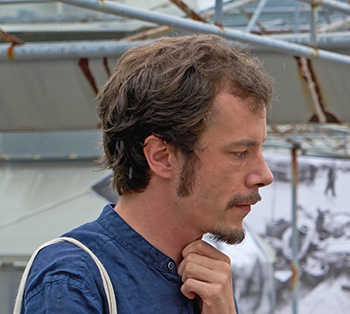
And I wasn’t disappointed – scholars from all over Korea, other Asian countries, and Germany presented fascinating papers on this year’s topic, intercultural literature. The following discussions, which tackled themes as diverse as orientalism, cross-cultural and insular writing, as well as the intricacies of Thomas Mann as a migrant or Mirok Li’s family history, continued until late at night.
What made this conference particularly special for me was that a group of students from Ewha Womans University – most of them graduate, but also one undergraduate student – had come, too. I was happy to see that they were using the opportunity to get some taste of academic life beyond the classroom. One of them even presented a paper related to her Master’s thesis. I’m certain they all had a great time, made some new acquaintances, and learned a lot. The presenter for sure did a great job and received much feedback on her paper, which may help in the further development of her thesis.
It’s never too early to attend a conference – and you don’t have to go to Gyeongju or to learn German to do so! Every week, dozens of conferences, special lectures, and round tables on countless different topics are held in Seoul. Some require prior registration or entrance fees, but many are free or offer student discounts. Not every conference is open to presentations by graduate students, but many are. Some even offer special mentoring sections, a great opportunity to get advice from senior scholars from other universities or even other countries! Many events are conducted in Korean, quite a lot in English, a few more in other languages. These are all good occasions to broaden one’s horizon and meet new people. Maybe you even get the chance to ask your favorite scholar a provoking question?
Because after each paper presentation everyone is invited to join the discussion. It may be a bit frightening at first to raise one’s hand and speak up, but most scholars are open to suggestions and happy to expand on details that didn’t fit into their talk. Sometimes professional or personal rivalries can turn civilized debate into self-centered colleague-bashing, but in most cases questions by non-specialists are as welcome as detailed inquiries. To be on the safe side, it’s always good to first thank the speaker for the “inspiring lecture” before asking away.
Conferences are scholars’ twisted idea of a party. We meet, get to know the latest trends (and gossip!), mingle and bond over coffee or beer. Besides socializing, a conference is also a marketplace for jobs and research projects, a rehearsal stage for public speaking, and, most of all, a collective classroom. Between papers and paper cups new thoughts are born, shared, debated, and reconsidered. After a long weekend of conferencing, I returned home tired but also full of ideas and plans. Not all of them will turn into something tangible, for sure, but some may prove fruitful at some later date.
Some say that we attend conferences mainly for the food. And it’s true! The read-bean-filled Gyeongju bread was certainly a welcome addition to the coffee table. But, as I’m sure the other attendants would agree, we were hungry, first and foremost, for some food for thought – a meal that grows with the number of people joining in. So which conference are you going to attend next?
Jan Creutzenberg
Department of German Language and Literature

